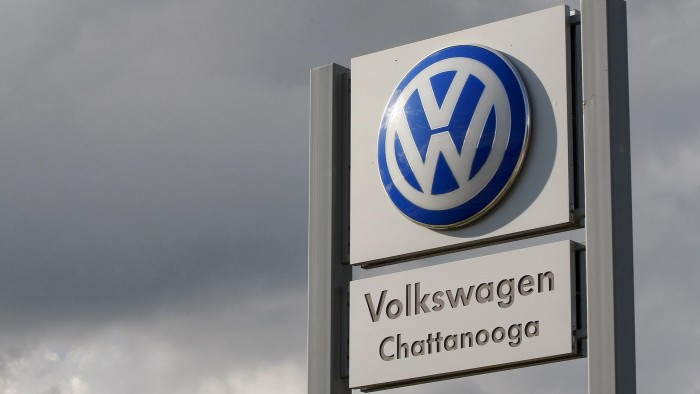Unlock the Editor’s Digest for free
Roula Khalaf, Editor of the FT, selects her favourite stories in this weekly newsletter.
The head of Volkswagen in the US has stepped down after only two years in the post, following growing concern at the German carmaker’s Wolfsburg headquarters over lacklustre results from its renewed attempt to win over American consumers.
In a statement on Tuesday, the world’s second-largest carmaker said Pablo Di Si had left “at his own request” last week. Volkswagen added that Kjell Gruner, a Porsche veteran and a former executive at US electric vehicle start-up Rivian, had been appointed as the new chief of its Americas business starting on December 12.
“In Kjell Gruner, we have brought on board an experienced expert who knows the market and customers very well,” said group chief financial officer Arno Antlitz.
Gruner, a former head of Porsche Cars North America, was most recently chief commercial officer of Rivian, which has a software joint venture with Volkswagen.
Since taking over the helm of Volkswagen two years ago, chief executive Oliver Blume has replaced several division heads with people he knows well from Porsche, which he also heads. Gernot Döllner, who last year took over premium brand Audi, and Peter Bosch, chief executive of software arm Cariad, both used to work at the sports car brand.
The management shake-up for the US, Mexican and Canadian markets comes as Volkswagen makes a renewed push to expand sales in North America to offset a sharp decline in sales in China.
But its efforts to win market share in the US have been overshadowed by Donald Trump’s win in the presidential election as he seeks to impose higher tariffs on foreign-made vehicles and slow the transition to electric cars.
Sales of the ID.4, Volkswagen’s first all-electric SUV, have also been slower than expected. Only 17,000 units have been sold this year — far below the 100,000 capacity at the company’s plant in Chattanooga, Tennessee.
The brand’s next big launch in the US is the ID Buzz, an electric remake of the iconic VW minivan. While there are hopes that it could help bolster the brand in the US, few expect the product to become a bestseller.
The German carmaker has said it wants to double the US market share of the group — including models such as Audi and Porsche — to 10 per cent and that of its core brand to 5 per cent by 2030.
Read the full article here

